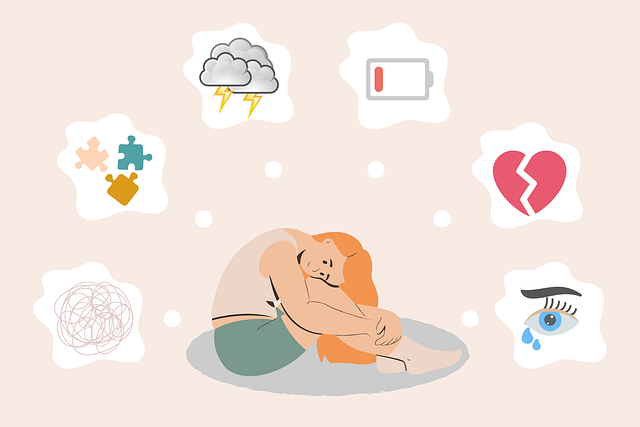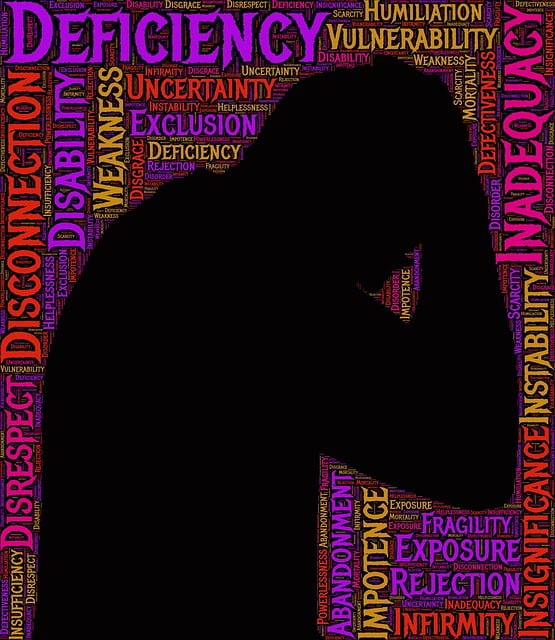Aurora Abuse Survivors Therapy (AUST) focuses on creating safe spaces and teaching effective coping mechanisms for complex trauma survivors struggling with stress and emotional responses. Through cognitive behavioral techniques (CBT), mindfulness practices, and holistic approaches, therapists at AUST empower clients to process trauma, build resilience, and achieve mental well-being. Evidence-based methods, public awareness campaigns, and resources like the Mental Wellness Podcast Series contribute to the transformation of Aurora abuse survivors' lives.
Stress management techniques are crucial for Aurora abuse survivors navigating the aftermath of traumatic experiences. This comprehensive guide explores evidence-based approaches designed to empower individuals in therapy. We delve into understanding the unique stress responses of survivors, creating safe and trusting therapeutic environments, employing cognitive behavioral techniques to reframe negative thoughts, and adopting mindfulness practices for calm amidst chaos. Additionally, we highlight long-term resilience-building strategies essential for coping with trauma-related stress.
- Understanding Stress and Its Impact on Aurora Abuse Survivors
- Creating a Safe Space: Establishing Trust in Therapy Sessions
- Cognitive Behavioral Techniques for Managing Stressful Thoughts
- Mindfulness Practices: Finding Calm in the Midst of Chaos
- Building Resilience: Long-term Strategies for Coping with Trauma-related Stress
Understanding Stress and Its Impact on Aurora Abuse Survivors

Understanding stress is a crucial step in assisting Aurora Abuse Survivors Therapy. For survivors of complex trauma, such as those experienced by many Aurora abuse survivors, stress can be particularly overwhelming and triggering. This is because past traumatic events often leave individuals with heightened sensitivity to stressors and challenges in regulating their emotional responses. In therapy, the focus should be on helping these survivors develop effective coping mechanisms and emotional regulation skills to manage stress and prevent it from escalating into adverse mental health outcomes.
Healthcare Provider Cultural Competency Training plays a significant role here, ensuring that therapists are equipped to understand and respect the unique cultural backgrounds and experiences of Aurora abuse survivors. This training enables healthcare providers to create safe, supportive environments where survivors can learn stress reduction methods, process their traumas, and develop resilience. By addressing stress management proactively, therapists contribute to the overall well-being and healing journey of Aurora abuse survivors.
Creating a Safe Space: Establishing Trust in Therapy Sessions

In Aurora Abuse Survivors Therapy (AUST), creating a safe space is paramount to fostering trust and encouraging resilience building among clients. This involves establishing an environment that is non-judgmental, empathetic, and confidential. Therapists play a crucial role in setting this tone by actively listening, validating client experiences, and maintaining open communication channels. By doing so, they help clients feel seen, heard, and respected, which are essential components of mood management and reducing the stigma associated with mental illness.
Within this safe space, survivors can begin to explore their emotions, memories, and reactions without fear of retraumatization. AUST techniques focus on helping individuals understand and manage their emotional responses, fostering coping mechanisms that promote mental well-being. Through consistent, supportive interactions, therapists empower clients to navigate their healing journey, ultimately enhancing their resilience as they work towards personal growth and recovery.
Cognitive Behavioral Techniques for Managing Stressful Thoughts

Cognitive Behavioral Techniques (CBT) offer a powerful tool for Aurora abuse survivors to manage and overcome stressful thoughts. This evidence-based approach helps individuals identify and challenge negative or distorted thinking patterns, replacing them with more positive and realistic ones. By learning to recognize triggers and developing coping strategies, survivors can effectively navigate their daily lives while processing trauma.
In the context of Aurora Abuse Survivors Therapy, CBT facilitates self-care routine development for better mental health. It encourages individuals to engage in regular practice, such as mindfulness exercises and journaling, which are essential components of risk management planning for mental health professionals. Public Awareness Campaigns Development plays a crucial role in promoting these techniques, ensuring survivors have access to the support they need to transform their lives.
Mindfulness Practices: Finding Calm in the Midst of Chaos

In the heart of chaos and uncertainty, mindfulness practices emerge as a beacon of calm for Aurora abuse survivors. These techniques, rooted in present-moment awareness, teach individuals to detach from traumatic memories and stressful thoughts. Through exercises like deep breathing, meditation, and mindful movement, survivors can cultivate a sense of groundedness and emotional balance. Such practices are transformative tools within therapy sessions, facilitating the crucial emotional healing processes required for trauma recovery.
Incorporating mindfulness into their daily routines allows individuals to better manage their moods and navigate stress reduction methods effectively. By focusing on the here and now, rather than dwelling on the past or worrying about the future, survivors can reduce anxiety and promote mental clarity. This is particularly beneficial in addressing the complex emotional landscapes often experienced by those who have endured traumatic events, enabling them to find sanctuary from chaos within themselves.
Building Resilience: Long-term Strategies for Coping with Trauma-related Stress

Building resilience is a key component in long-term stress management, especially for individuals who have experienced trauma, such as Aurora abuse survivors. Therapy plays a vital role in this process by providing a safe space for clients to process their experiences and develop coping mechanisms tailored to their unique needs. Through evidence-based practices, therapists help survivors navigate their emotional responses, fostering mental wellness over time.
The Mental Wellness Podcast Series Production offers valuable resources for those seeking alternative ways to manage stress related to past traumas. Risk Assessment for Mental Health Professionals is crucial in ensuring that therapists are equipped to handle sensitive cases effectively. By integrating mood management techniques into therapy, Aurora abuse survivors can build resilience and lead more fulfilling lives, showcasing the transformative power of therapeutic interventions.
Effective stress management techniques are invaluable tools for Aurora Abuse Survivors Therapy, providing a holistic approach to healing. By combining cognitive behavioral therapy, mindfulness practices, and building resilience, therapists empower individuals to navigate trauma-related stress and cultivate long-lasting well-being. These strategies create a safe space for survivors to process their experiences, manage unhelpful thoughts, and develop healthy coping mechanisms, ultimately fostering a sense of trust and empowerment in their therapeutic journey.














